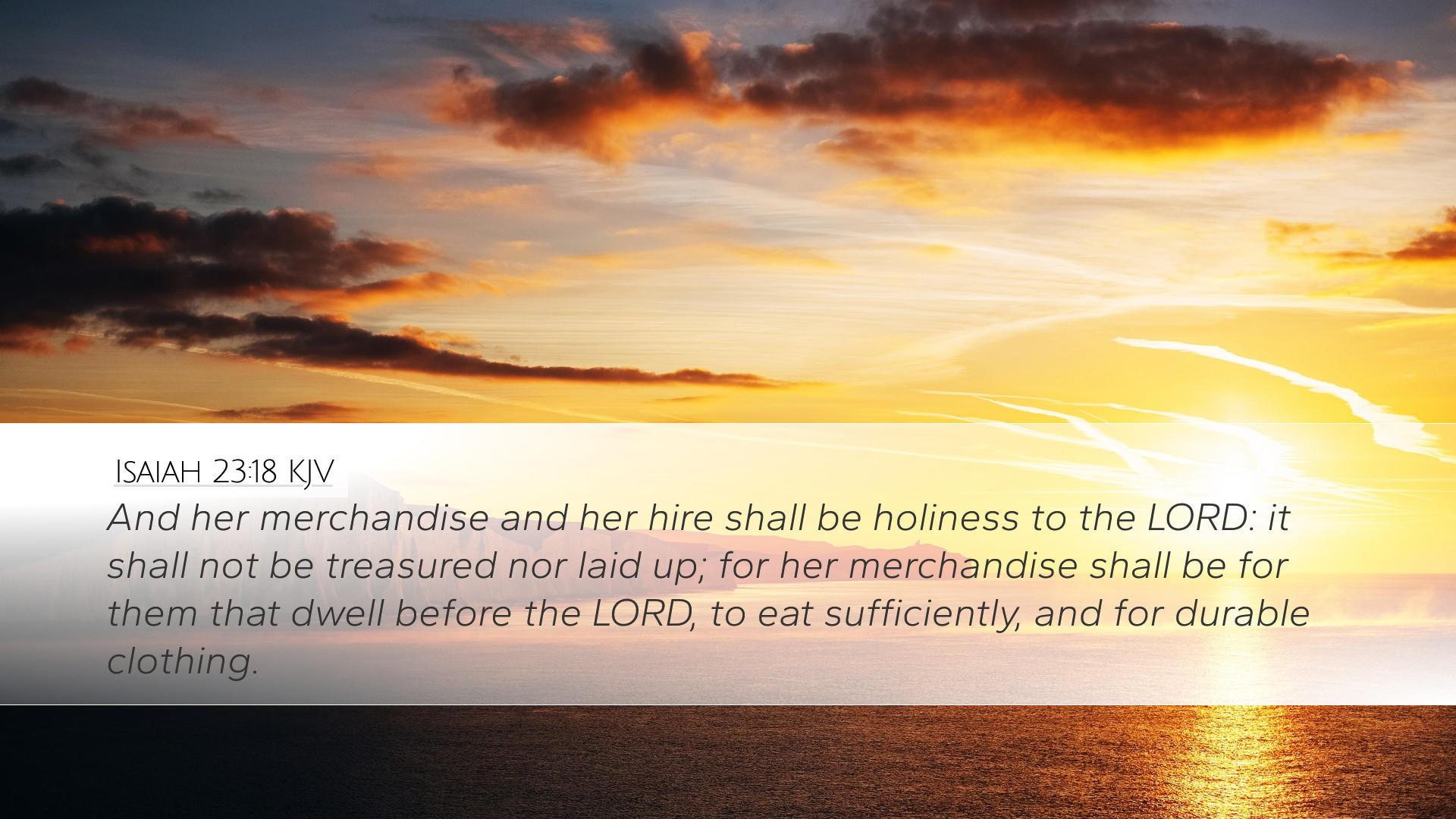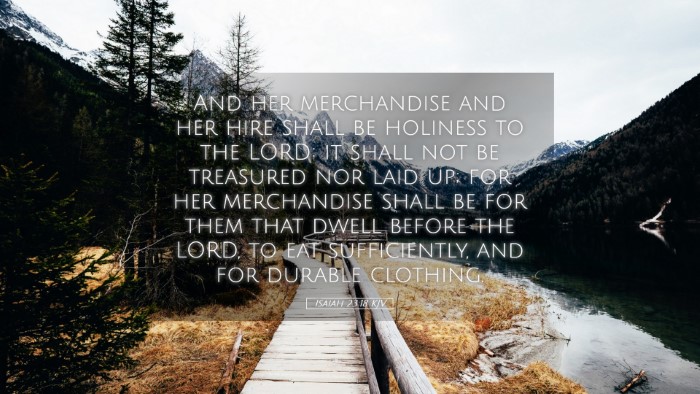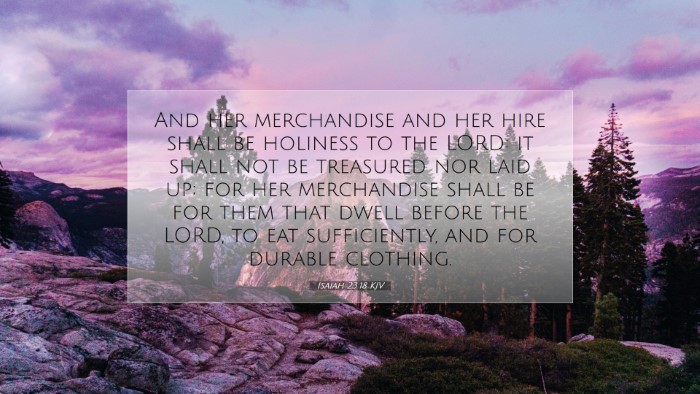Commentary on Isaiah 23:18
Verse Context: Isaiah 23:18 states, "And her merchandise and her hire shall be holiness to the Lord: it shall not be treasured nor laid up; for her merchandise shall be for them that dwell before the Lord, to eat sufficiently, and for durable clothing." This verse occurs in the context of God's judgment upon Tyre, a coastal trading city known for its wealth and commerce.
Historical Context
The city of Tyre was a significant maritime city in the ancient Near East, renowned for its commerce, craftsmanship, and wealth. In this passage, the prophet Isaiah speaks of Tyre's eventual downfall and its implications for economic practices. He prophesies that the bounty which was once hoarded for personal gain will instead be dedicated to the Lord.
Insights from Matthew Henry
According to Matthew Henry, this verse highlights a drastic transformation in the use of Tyre's wealth. Before its downfall, the city's riches were accumulated for the sake of profit and personal luxury. However, after judgment, the goods that were once mere merchandise would be repurposed for divine service.
Henry emphasizes the notion that true wealth is not in the accumulation of riches but in their use for God's glory. He points out that the people will no longer hoard their wealth but will instead distribute it generously to those who dwell in the presence of God. This reflects a shift from self-interest to service in the divine economy.
Insights from Albert Barnes
Albert Barnes further elaborates on the transformation of Tyre's economic contributions, noting that the reference to “her merchandise” is indicative of the very essence of Tyre's identity as a commercial hub. He stresses that the wealth that is to be dedicated to the Lord will serve practical needs and contribute to the sustenance of the community of believers.
Barnes emphasizes the symbolic significance of this transition. He asserts that while Tyre was once characterized by greed and selfish accumulation, the future reallocation of its wealth towards God's service represents a paradigm shift toward holiness. The merchandise, once a source of pride, will now sustain those who are devoted to the worship of God.
Insights from Adam Clarke
Adam Clarke also reflects upon the spiritual implications of this verse. He interprets the phrase “holiness to the Lord” as signifying an offering that is sanctified for divine use. Clarke believes that the transformation outlined in this passage signals a broader principle: the reorienting of human resources for heaven's purpose.
Clarke suggests that the products and profits of trade, once instruments of sin, will become agents for fulfilling God’s purposes on the Earth. He affirms that this reflects a recovery of the original intent of creation—where all things were created for His glory and not for selfish gain.
Thematic Elements
The thematic richness of Isaiah 23:18 can be seen in the evident contrast between the past and the intended future. Several key themes emerge:
- Transformation: The verse shows how God can transform human systems and economies from self-serving to serving Him. The shift from materialism to holiness is pivotal.
- Divine Sovereignty: It showcases God’s authority over nations and cities, highlighting His ability to change the destiny of even the wealthiest of cities.
- Community and Sharing: Emphasizing that the resources will be used to benefit the community reflects God's desire for us to care for one another.
- Holiness: The call to holiness is central to this passage, underscoring the idea that what is devoted to the Lord must reflect His character and purposes.
Practical Application
The practical implications of Isaiah 23:18 challenge pastors, theologians, and believers alike to reflect on their own resources, wealth, and possessions. The exhortation is clear: our economic practices should align with God’s vision for His kingdom.
As stewards of God's grace, we are to recognize that our resources should serve not just ourselves, but the community of faith and those in need. Just as Tyre's wealth will be transformed from a source of pride to a means of service, we are called to allow God to transform our hearts and our priorities.
Conclusion
In conclusion, Isaiah 23:18 represents a profound reminder of how God can reclaim the wealth of nations for His glory. It calls us to examine our own lives in light of God's ultimate purpose and the redemptive power of His sovereignty. May we dedicate ourselves and our resources to the holiness of the Lord, echoing the transformation prophesied for Tyre in our own contexts today.


